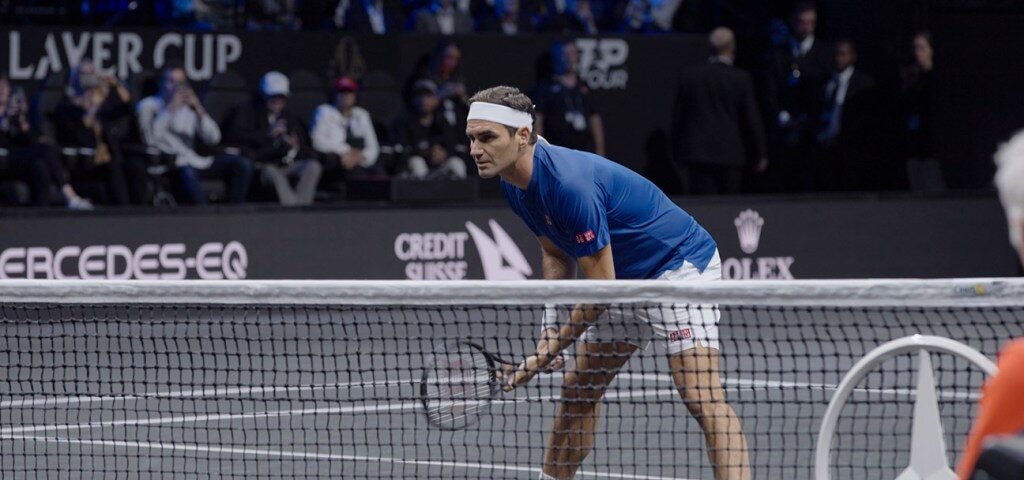


‘Sacramento’ Review: Michael Cera and Kristen Stewart Star in a Slight but Winning Road Comedy
June 21, 2024


‘Baby’ Review: Lessons in Survival for a Resilient Gay Teen in a Gritty and Tender Brazilian Drama
June 22, 2024Asif Kapadia and Joe Sabia’s film started life as a home-video tribute to the last days of Federer’s tennis career, and that’s still how it feels.


Movies
‘Winter Spring Summer or Fall’ Director on Helming Her First Movie With Jenna Ortega, Percy Hynes White Amid ‘Wednesday’ Frenzy
When it comes to the Big Three who have dominated men’s tennis for the past two decades, I’ve always favored Roger Federer over rivals Novak Djokovic and Rafael Nadal. Federer’s game had a multi-surface brilliance and beauty that rarely got obscured by anything extraneous — off-court drama, on-court excesses. You could marvel at the reliable wizardry of a Federer performance and just assume that, in his utterly wholesome boringness, he wouldn’t let you down as a person either.
So when I call Asif Kapadia and Joe Sabia‘s Federer: Twelve Final Days, a new documentary premiering at Tribeca ahead of its Amazon airing, comfortably dull, that’s another way of saying that it’s probably precisely the documentary that Federer would have wanted made about himself.
Focusing, as the title suggests, on the 12-day period between Federer’s announcement of his retirement and his final performance, a doubles match with Nadal at the 2022 Laver Cup, Twelve Final Days is a story about control.
Federer’s career was defined by control, in terms of his on-court performance and off-court maintenance of his body. When he reached the point at which he no longer felt he had the necessary control, he decided to step away, doing so in a fitting manner that gave him full authority over his exit. He set the time and the place at a tournament that he, not coincidentally, helped found. And the tournament — an international points-based showdown, not a win-and-advance structure — allowed him to guarantee that his participation would be only a single match.
This is not a “one last run at the title”-style story with dramatic stakes and the possibility of glory — see The Last Dance or the Jimmy Connors 30 for 30 installment This Is What They Want. No, it’s just a home movie of a valedictory moment, which is exactly what Federer: Twelve Final Days was originally intended to be.
Then it’s perhaps 15 minutes of tennis (probably less), in which the editors try to create the illusion of excitement, even though it’s one step up from a glorified exhibition match. That part’s not dull, exactly, but shows like Netflix’s Break Point have raised the bar for how access and technology can be used to capture tennis action in a unique way; this is not on that level.
Then it’s 10 minutes of men crying, the greatest impact coming not from Federer’s tears, but from the reactions by Nadal, Djokovic and Andy Murray, which somehow underline the “end of an era” feeling more than anything Federer says or does himself. Seeing those contemporaries, so different from Federer on and off the court, respond to Federer is in all ways more interesting than watching Federer’s own close grasp on the proceedings. And even this feels like exactly what Federer would have preferred — to let his peers’ tears upstage his own.
Perhaps in the transition from “Let’s make a home movie that nobody will ever see” to “Let’s make a movie that we can play at festivals and on Amazon,” somebody decided to add a very rudimentary Federer biography and some classic Federer footage. But it’s a perfunctory add-on, and not the meat of the documentary. And if somebody instead said, “Let’s make a documentary on why Roger Federer was great,” this is not it.






